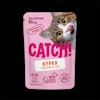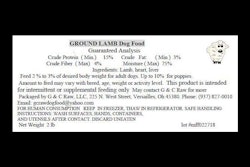
The human foods industry abruptly shifted away from using the controversial chemical bisphenol-A (BPA) to line metal cans following 2010, because of consumer pressure and the availability of alternatives, according to Packaged Facts analysts in the report “Pet Product Packaging Innovation.” However, the pet food industry has been slow to follow this health trend. Promoting wet dog and cat food cans as BPA-free could be an opportunity for brands to address consumer concerns over the potential health risk.
“Transition for pet food cans has been slower and marketers have not been as transparent on the process, so a considerable amount of confusion remains for consumers as to which pet food companies have switched to BPA-free cans,” wrote Packaged Facts analysts. “Thus, companies who verifiably show the BPA-free status of their cans should use this as an important marketing tool.”
Concerns over BPA safety
BPA is used to line metal pet food containers. However, the chemical may disrupt hormone levels and have other health effects in both animals and people at high enough levels. The U.S. Food and Drug Administration considers BPA safe at the levels adults consume in their foods, although FDA continues to evaluate the chemical’s effects at low levels.
Some scientists have raised concerns that even tiny amounts of BPA can influence human health. Public concern led to the widespread abandonment of BPA for use in products meant for babies and children, including baby bottles and sippy cups.
How BPA enters canned dog food
Thermal processing temperature, makeup of the product contents, repeated container uses and pH swings are known to increase the amount of BPA that leaches from plastics. Some researchers are concerned that BPA can leach out of the plastic resin in the can into wet pet food and over a lifetime of feeding have ill effects.
BPA found in dogs fed canned pet food
After eating canned dog food for two weeks as part of a biomedical study, dogs had higher levels of the controversial chemical bisphenol A (BPA) in their blood than when the research began. The results of the study on the possibly harmful chemical were published in Science of the Total Environment.
Previous studies have found that canned dog food consumption may increase BPA levels in dogs, and the research conducted by University of Missouri biomedical scientists corroborates those results.
“The dogs in the study did have minimal circulating BPA in their blood when it was drawn for the baseline,” Cheryl Rosenfeld, associate professor of biomedical sciences in the University of Missouri School of Veterinary Medicine, said in a press release. “However, BPA increased nearly three-fold after being on the either of the two canned diets for two weeks. We also found that increased serum BPA concentrations were correlated with gut microbiome and metabolic changes in the dogs analyzed.”



















